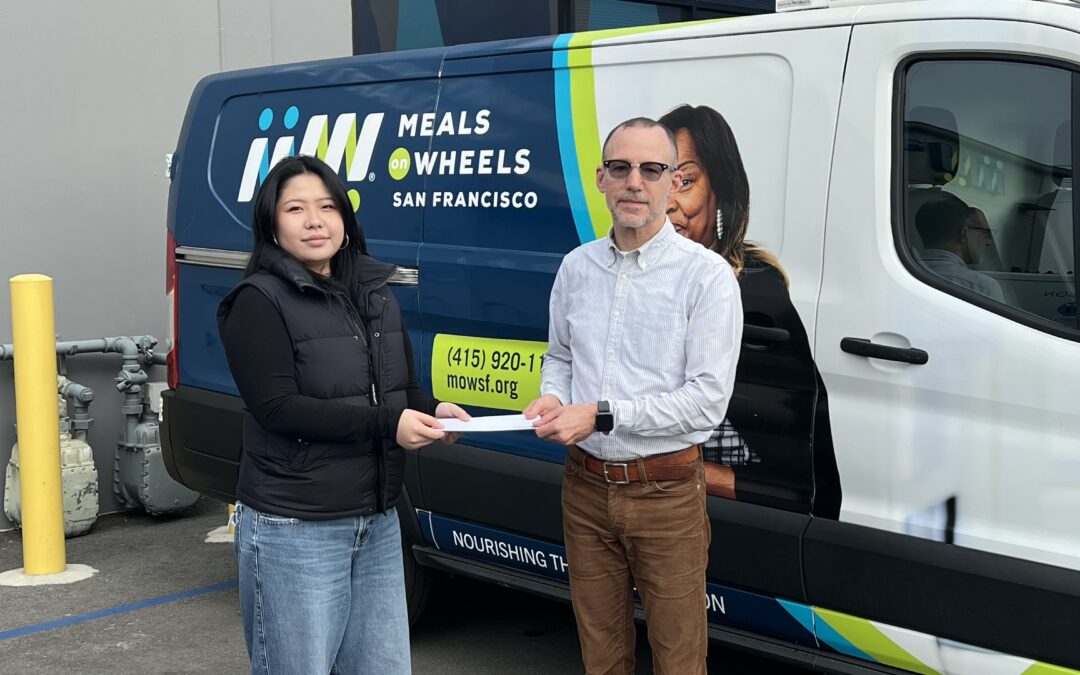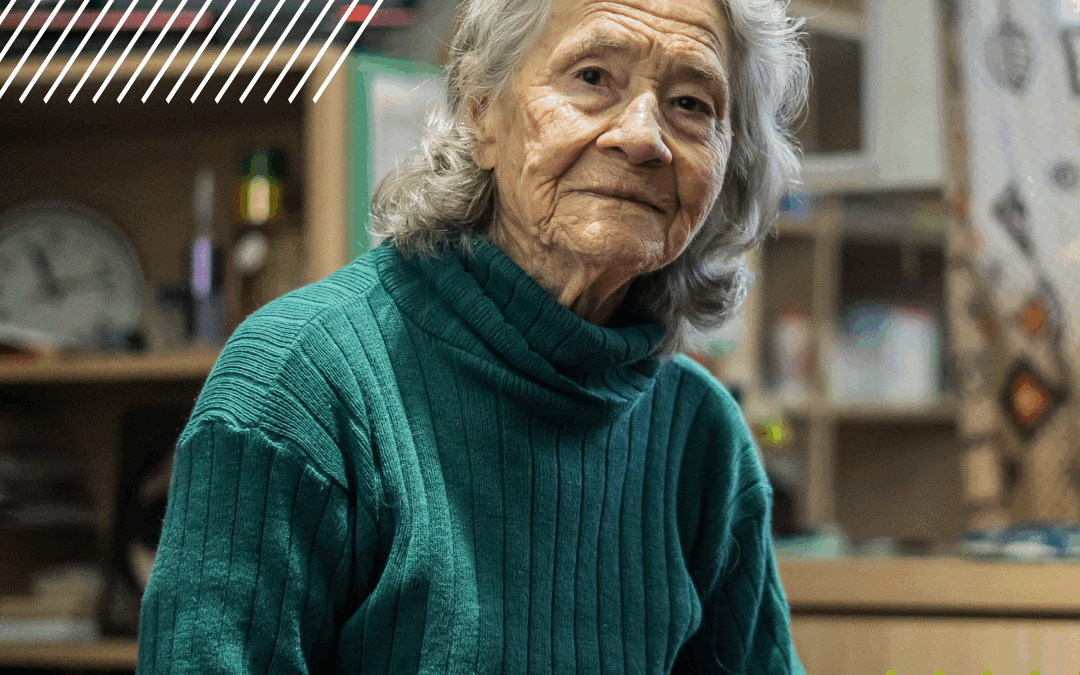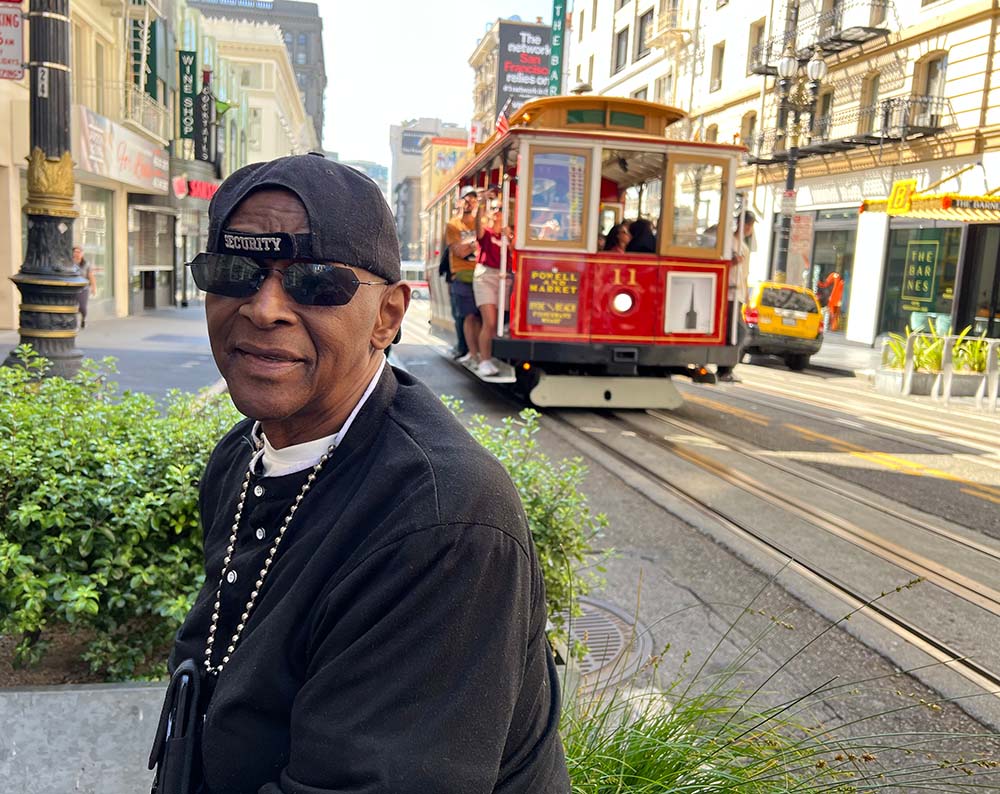
I met Paul, who is 80, outside of his apartment on Powell Street in San Francisco on a picture-perfect day. The iconic cable cars clang up and down the street unloading a steady stream of people into Union Square. The sidewalks were lined with well-dressed tourists taking in the sights and sounds of the world-class dining, shopping, and entertainment that the City offers.
Paul was sitting on a bench in front of his building which is also a hotel. He’s wearing a black hat with the word security printed on the back, a pull-over Henley, loose dark-colored pants, and a big chain around his neck with a small ID wallet attached that also holds his keys and Clipper transit card.
He seems excited to meet me getting up to shake my hand. As I sit down next to him, he rests his cane between us. Paul moved to the Bay Area from New Jersey in 1965. Even more so – he tells me that at one point, he was at his wit’s end trying to figure out how he would get food, and how thankful he is for Meals on Wheels.
Newspaper gig
During the 70s, after a short stint working in security, Paul tells me he found work with the San Francisco Chronicle assembling the daily newspaper. By the 80s, he became the first black officer in the Bay Area to become a shop steward for the news chain.
“Once I was done with the papers, I started receiving a small pension and social security – but it wasn’t enough,” said Paul. “Then a security job came up at this [Powell Street] building and as compensation, included rent at about $350 a month.”
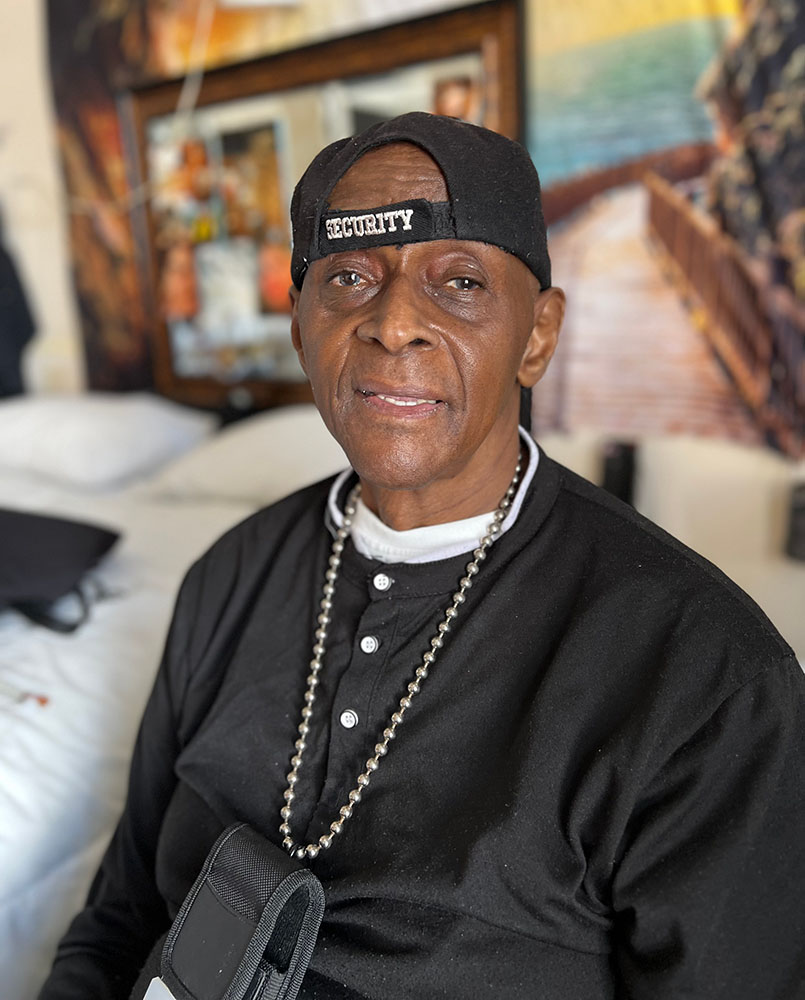
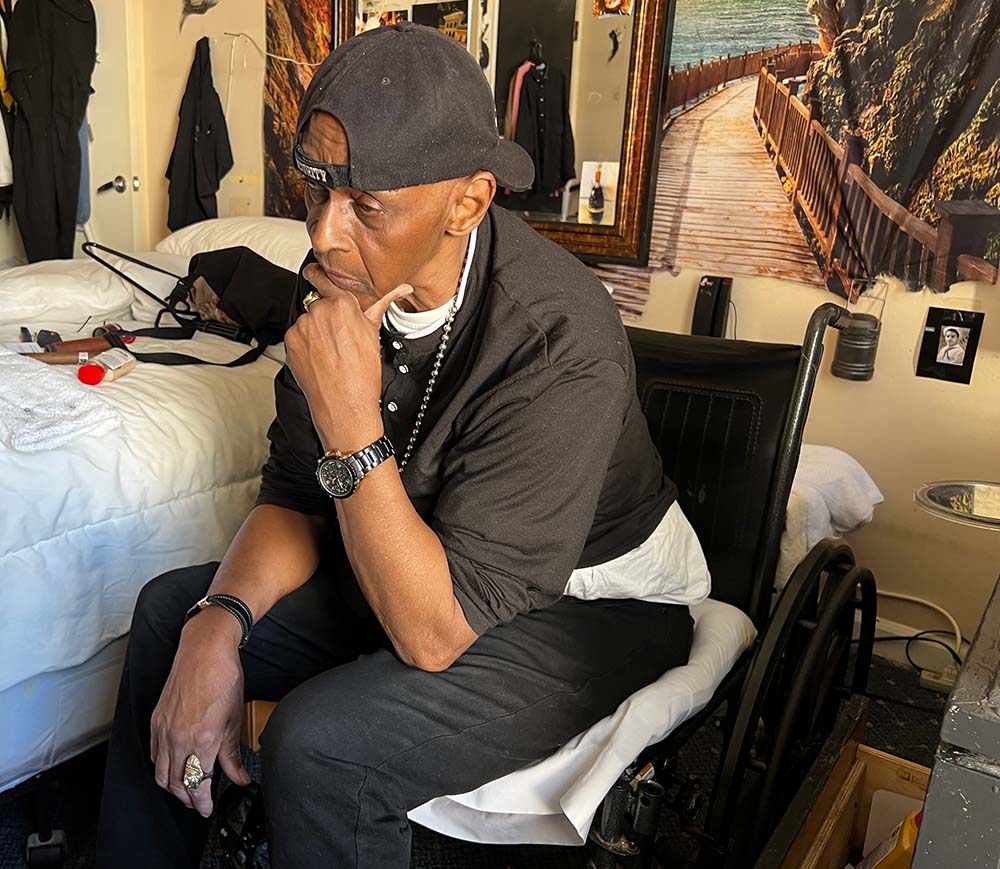
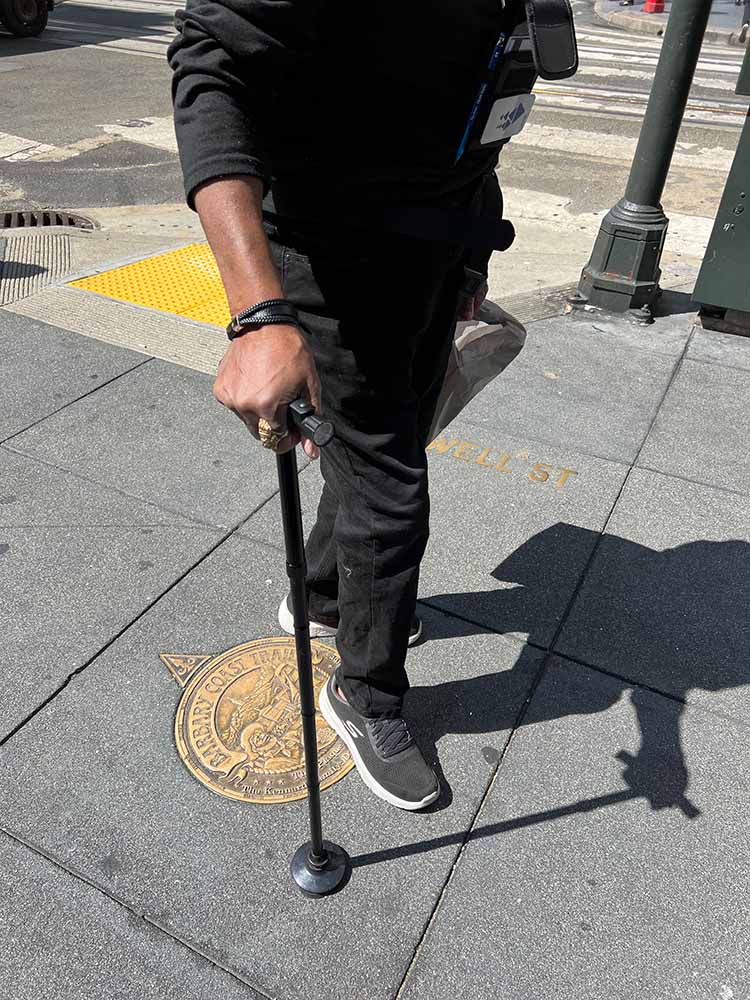
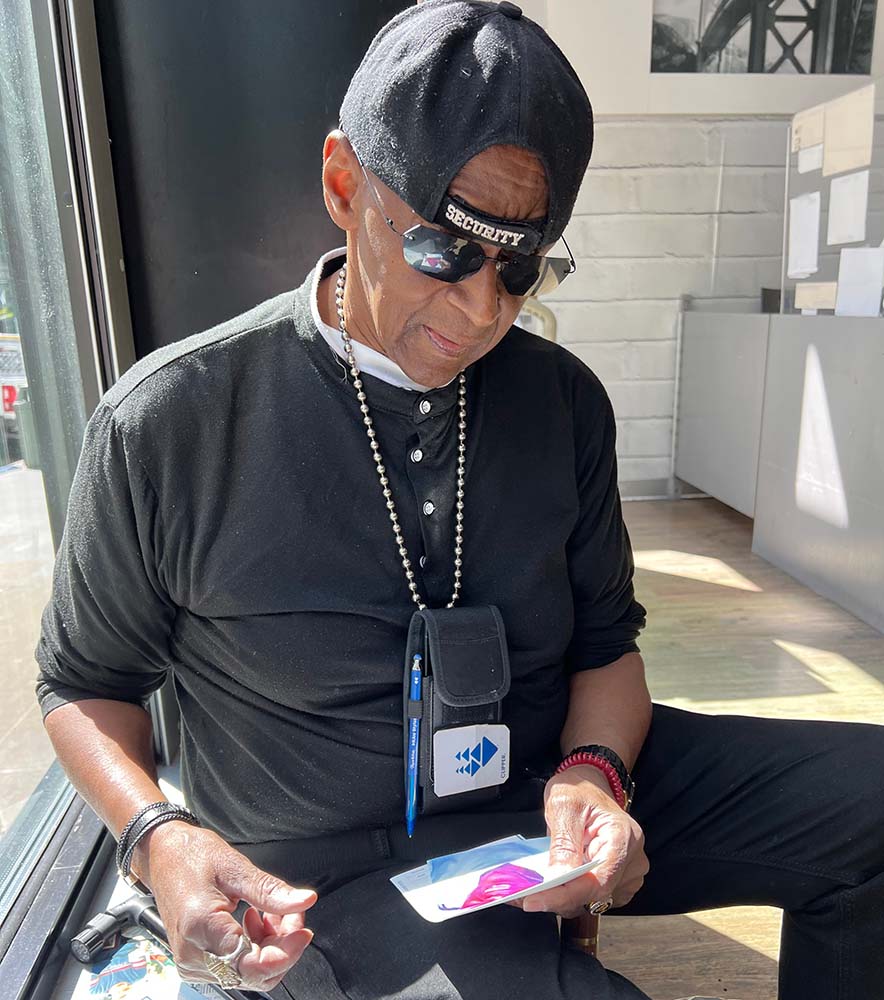
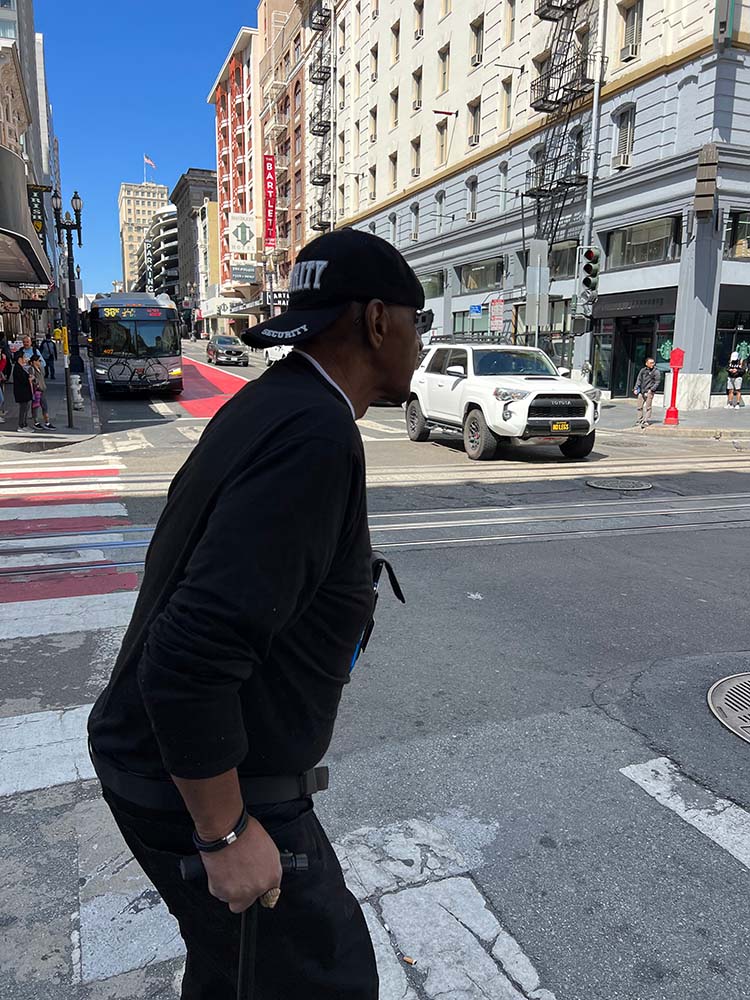
Paul did this work for many years earning him the nickname “the Mayor of Powell Street” from his co-workers and neighbors. When the building management changed, the deal he had with his original employer fell into limbo. His health had changed too. He had asthma and had been briefly hospitalized for various ailments.
How am I going to get food?
It was 2020, and the pandemic had begun. COVID Lockdowns and sheltering in place were the norm. Furthermore, visitors to hotels plummeted, so the building management decided it was a good time to close and renovate the building. As Paul recalls – “it was rough” as he was the only one actually living inside this big building at the time and there seemed to be no one maintaining it. In a sense, he was all alone, sheltering in place in his room.
“They [building management] couldn’t just get rid of me, but they did nothing to fix my unit or the building,” he said as he pointed to the very top of the building and his room on the corner of the eighth floor.
One night, Paul suffered an accident breaking his foot while leaving his apartment. He went to the elevator only to discover it had stopped working. He called 911 and an emergency crew came to his rescue. Paul returned home permanently needing the use of a cane and sometimes a wheelchair. Not only was he homebound, but he was now housebound. He was at his wit’s end.
“I had issues — like how am I going to pay my bills, how am I going to get my mail, and how am I going to get food up to my room,” Paul explained. “That’s when I called Kristi [from Meals on Wheels] and told her I’m going to jump out of this window – it’s so bad.”
Turning point
Kristi Hirsch is the Director of Social Work at Meals on Wheels San Francisco. Working with the Department of Disability and Aging Services, Kristi, got Paul started on receiving meals immediately.
I’m stunned as I hear his story, trying to imagine a circumstance that would drive me to want to jump out of a window.
Paul asked me if I’d assist him in walking a couple of blocks to the nearby Walgreens to pick up some photos he had developed. I help steady him a couple of times — it’s a slow journey there and back crossing the busy street. The security guard inside the store smiles and says hello to Paul who returns the salutation. He tells me they’ve known each other for a long time.
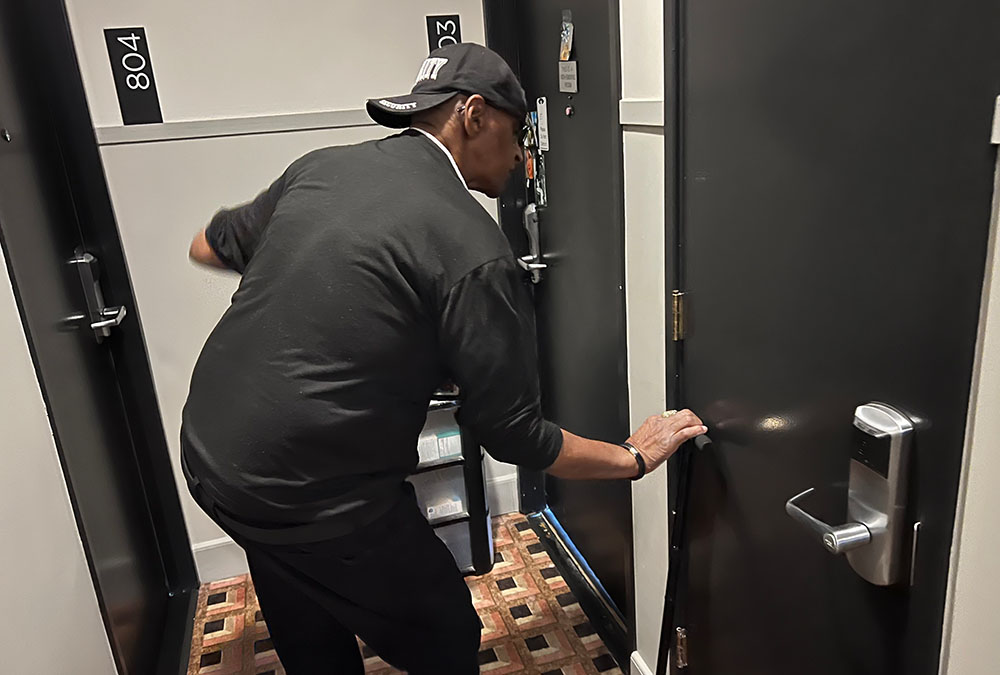
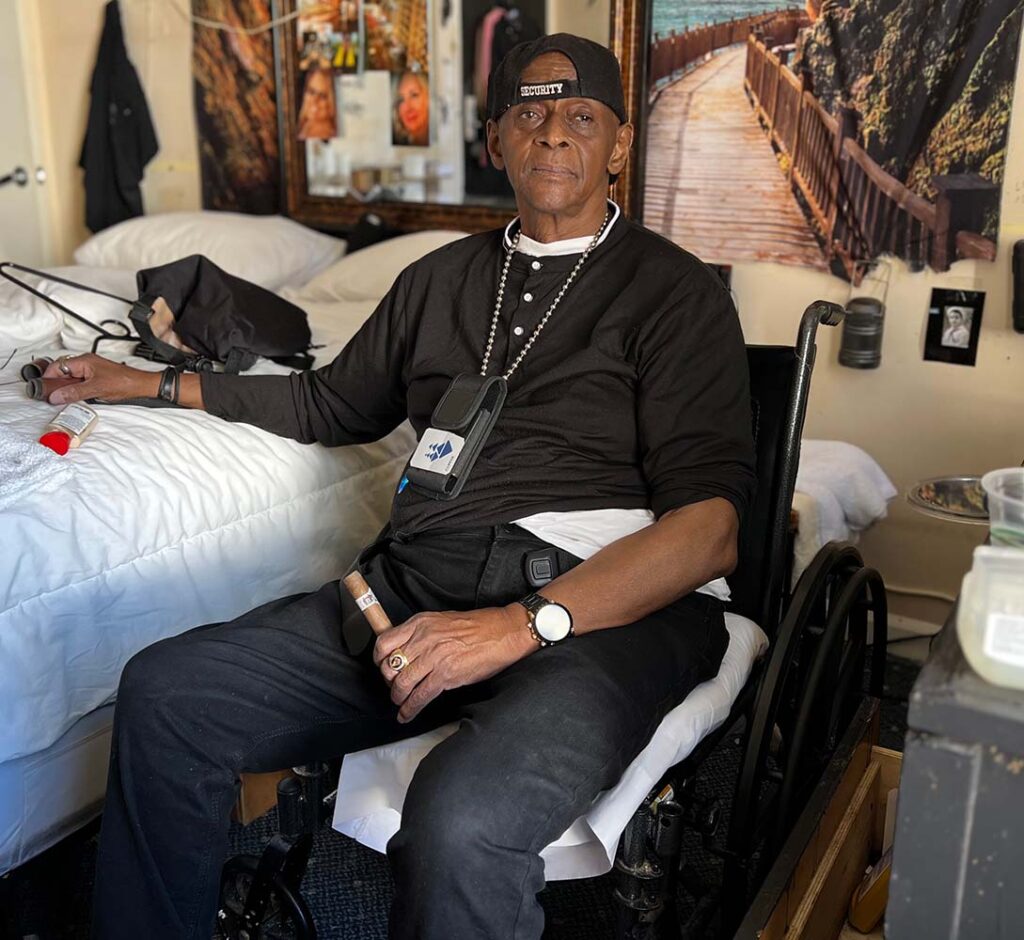
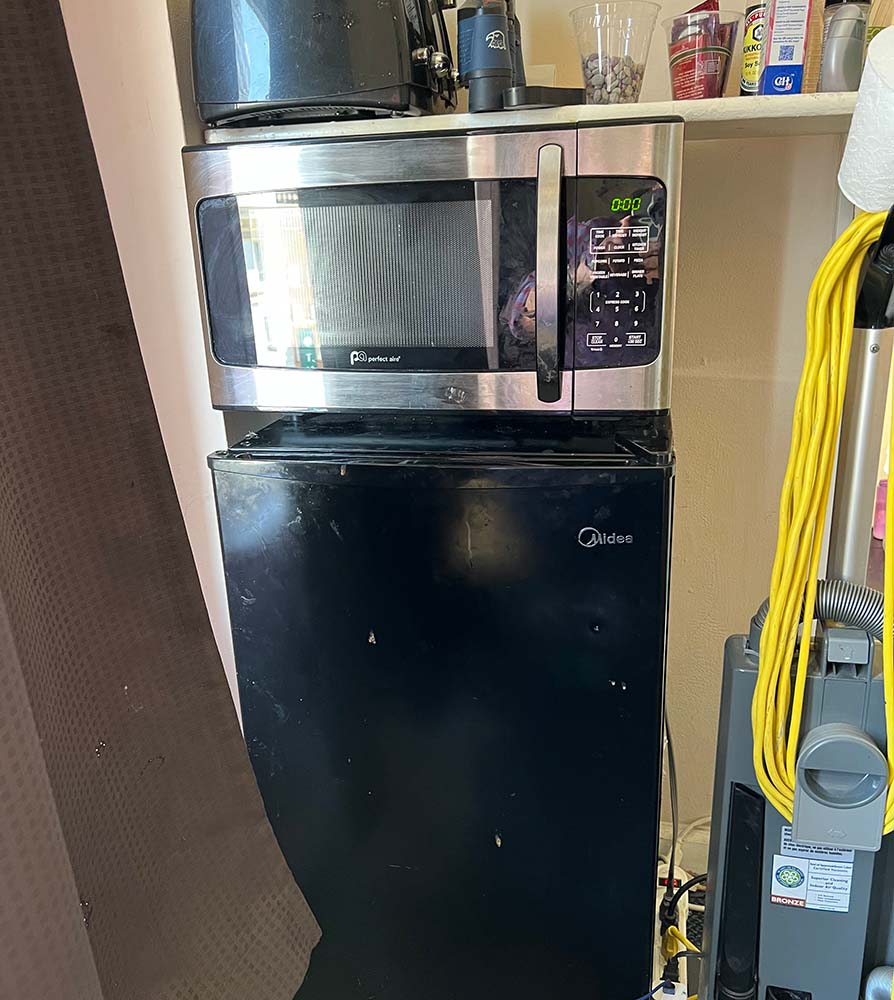
After that errand, Paul invited me inside his apartment. We take the elevator up to his room on the eighth floor. The 2020 remodel of the lobby looks modern and inviting. There are travelers with suitcases scurrying hurriedly past us. One would consider this as a “boutique hotel.”
That all changes when we get to his apartment which doesn’t even seem to be part of the same modern building I just saw downstairs minutes ago. Paul opens the door to a tiny room just big enough for his bed, a small bathroom, and a shower area. There are a couple of pictures tacked onto the wall – they are of two girlfriends he used to date some 20 years ago. The walls need to be repaired. There’s a microwave sitting on top of a small refrigerator next to his dresser where his laptop rests – a mirror is carefully perched over it to refract the screen so he can watch videos from it while in bed.
Meals on Wheels makes a difference for Paul
“Meals on Wheels saves me at least $20 a week on food costs,” Paul tells me.
He receives 11 meals a week from Meals on Wheels which he says helps him a lot given his fixed income and how difficult it is for him to leave his apartment to run errands. He says he is grateful for the service and for the visits and check-ins.
It occurs to me that despite living in the heart of San Francisco’s Union Square surrounded by so many people, Paul is alone and in many ways, isolated – something that, sadly, is all too common for many seniors who have outlived family or whose friends have moved away.

